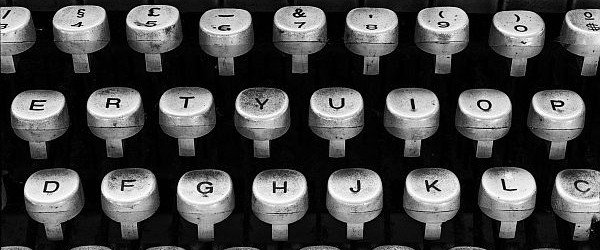In 2019, there will be no Vogel’s literary award. None of the manuscripts – the prize’s press release suggests – were up to scratch: ‘the judges’ decision speaks to their respect for the award and their desire to maintain the excellent standards of previous winning manuscripts.’ In other words: we’d be embarrassed to publish any of the submissions.
The judges’ ‘respect for the award’ seems misplaced. While organisers claim that the award – given to an unpublished manuscript by a writer under 35 – has ‘launched the careers of over a hundred Australian authors,’ it rarely does any such thing. As Ben Walter pointed out in a 2018 essay for Overland, half of Vogel’s winners never publish another novel.
Some people don’t like prizes like the Vogel’s because they award young writers, and what kind of person has time to write a novel when they’re under thirty-five? Only privileged people, making young writers’ prizes a form of discrimination – at least according to Robin Black in the New York Times, Joanna Walsh in the Guardian or Bronwyn Lea in The Conversation.
Yet when I take a look at, say, the Sydney Morning Herald’s Best Young Australian Novelist, I do not cop an eye-load of privilege. Jennifer Down, Shaun Prescott, Robbie Arnott, Rajith Savandasa, Julie Koh: these are writers who have been working their guts out for years to produce novels and stories, but also to feed themselves, make careers outside of fiction, keep friendships and families together and even, hair-raisingly, bring up children. Working out how to be a writer and also live a decent human life is complicated.
As any emerging writer can tell you, ‘how do I make this life work?’ is a far more pressing question than ‘how do I make this sentence work?’. Trying to answer the former can take up most of the brain-space you should really be dedicating to the latter. For most writers, there isn’t a solution. Many plug away for years at jobs, children, friends, elderly parents and watch that magic ‘under-35’ deadline disappear in the rear-view mirror. For some, the passing of that deadline is the cue to give up their dreams of writing. Others cling on, and as kids get older and careers don’t really pan out – or, sometimes, stabilise to the point of being bearable – they have another crack at it. Some, having written manuscript after manuscript of crap, alone in their bedroom or at the kitchen table, finally figure out after decades how to make a novel that works. (You may not realise this, but it can be really hard and very time-consuming to write a book that’s worth reading.)
Some of these ‘late’ bloomers are men. Most of them are women. And many of them will, when their novel is finally written, discover they’re excluded from all kinds of opportunities for emerging writers and will feel a bit miffed. Because even if you’re over forty when you emerge, you’re still as damp and hopeless as those baby-faced chrysalises in their mid-twenties, right?
Writing is difficult – finding time, learning skills, overcoming the horrors of crippling self-doubt. Getting your writing published is even more so. Winning a prize is next-to impossible.
Not awarding the Vogel’s this year is downright cruel. Mediocre books get published all the time, and some of them even win multiple awards: who cares if you give the Vogel’s to a manuscript that isn’t a work of utter genius? The people who’ve submitted manuscripts have found a way to carve out time and space to write. They’ve dedicated themselves to a craft that has almost no financial or social reward. They’ve put their hopes on the line. Choose the best of the bunch and shortlist them: give one of them a prize. Maybe it will be the only money and recognition that writer ever gets, or maybe it will be the encouragement they need to go on to write better books. Either way, who cares: anything is better than the big plate of nothing most writers are served. And while you’re at it, prize-giving-organisations, how about setting up a prize for emerging writers over forty? How about one for an emerging writer whose career has been delayed by raising children, caring for parents, making a living, getting an education, being sick.
It’s embarrassing doing things for the first time when you’re old. You can feel pretty dumb, finally nailing a thing that you feel you should have mastered when you were young. Telling people that my first novel had just come out and that I was forty-three years old felt nearly as daft as getting married for the first time at the age of thirty-seven. Author headshots and bridal photos are no place for faces over thirty. This is an age for cynicism, wisdom and world-weariness, not naïve excitement and hopeful optimism. The dearth of prizes and fellowships for emerging writers over forty is a reminder that you have definitely – as usual – done it all wrong.
